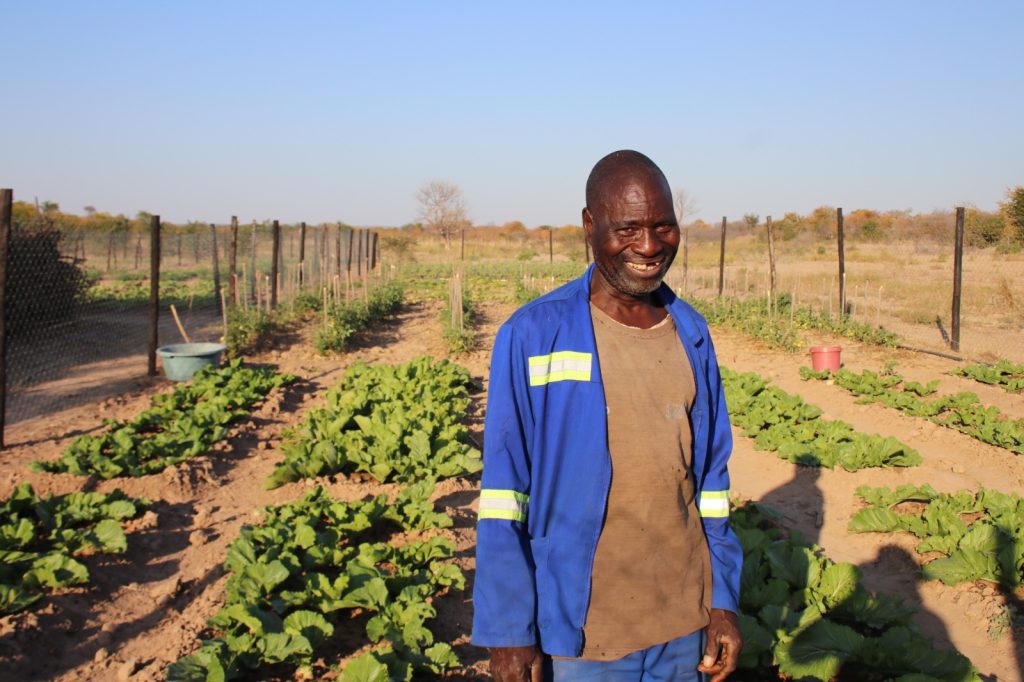Lazarus Sianjalika is a farmer who has worked the land for more than three decades in Neganda Kariba rural. He has always had a deep respect for mother earth but limited knowledge about alternative pollinators and their role in food security.
The coming in of the Reversing Environmental Degradation in Africa and Asia funded ‘Community led farming with alternative pollinators’ project changed his perception. After being trained by Nutrition Action Zimbabwe and partners on environmentally friendly agricultural practices, Sianjalika embraced the shift in his farming approach.
“I learnt that pollinator diversity provides a form of protection for agricultural ecosystems. A wide range of pollinator species like bees, butterflies, moths, and even bats, ensures that crops can be effectively pollinated under different climatic conditions and with varying plant species. If one type of pollinator declines, others may be able to step in and fill the gap, enhancing the resilience of the food system,” Sianjalika said.
“I witnessed this truth with my first cropping cycle where my watermelons, okra and butternut crops improved in yield and quality compared to previous years and I managed to sell surplus and gained USD$200, a first ever bigger amount to come out of a nutrition garden.
“It is a different world now, before the tomatoes would grow, but they would be small, and for all your hard work, a plant would give you only two or three fruits, now a tomato plant would give 6 to 10 fruits.”
The change, he explains, came with a simple yet powerful shift in approach. Instead of using chemicals to fight pests, which he now knows also drives away beneficial insects, he learned to work with nature. This meant planting coriander ‘flowering plants’ around his crops to attract bees, butterflies, and other vital pollinators. It also meant a complete rejection of chemical fertilizers in favor of organic methods.
“This is not a small thing; the training was wonderful and enlightening. The same plant that gave me three fruits before now gives me ten. This concept is so productive and I am implemented it again for this second cropping cycle. The plants are strong because they are being properly pollinated, and it’s all the work of nature.”
Beyond the incredible increase in yield, Sianjalika is a firm believer in economic and environmental benefits. He explains that abandoning expensive chemical fertilizers has saved him a significant amount of money.
“We are using only organic manure now, and the soil is good,” he says with a smile. “The organic matter holds water better and makes the soil soft and rich.”
The move towards a more sustainable approach has also inspired Sianjalika and his community to plant more trees, creating a more robust and resilient ecosystem. He is also a strong advocate for thermal composting; a practice he says is key to their success.
“We are no longer just farming for ourselves; we are healing the land,” he states. “By making our own compost and bringing back the pollinators, we are ensuring that this land will feed our children and our grandchildren. This is not just about farming; it is about life.”

